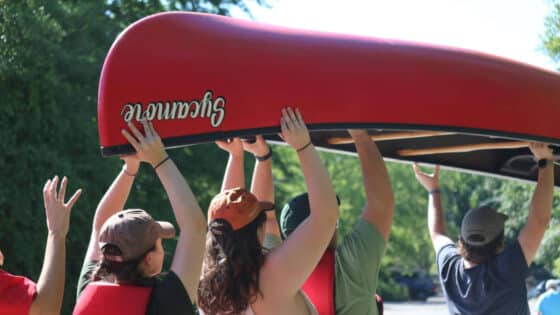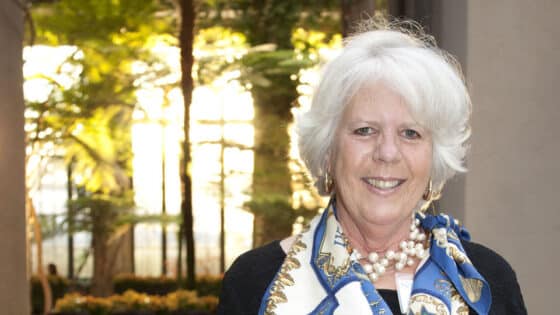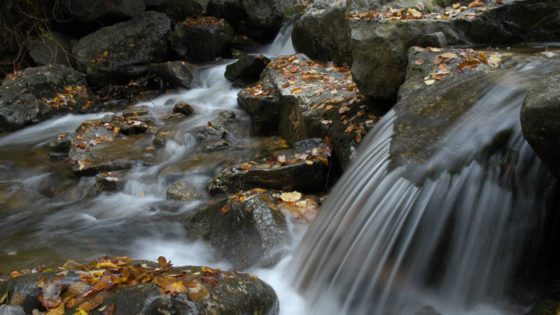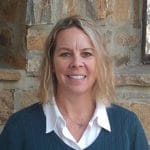 Lisa Blazure is the newest member of the Robin L. Vannote Watershed Restoration Program. She brings to Stroud Water Research Center a deep understanding of how improving agricultural soil health can result in less stormwater runoff, healthier streams, fewer fertilizer inputs, and reduced atmospheric carbon dioxide levels. We welcome her to the Stroud Center and asked her tell us a little bit about herself.
Lisa Blazure is the newest member of the Robin L. Vannote Watershed Restoration Program. She brings to Stroud Water Research Center a deep understanding of how improving agricultural soil health can result in less stormwater runoff, healthier streams, fewer fertilizer inputs, and reduced atmospheric carbon dioxide levels. We welcome her to the Stroud Center and asked her tell us a little bit about herself.
Tell us about your goals and aspirations. What do you wish to accomplish while working at the Stroud Center?
In my role as soil health coordinator, I’m working with farmers in the Chesapeake Bay watershed to implement best management practices like no-till planting, cover crops, increased crop diversity, and livestock management. These practices lead to improvements in soil health which in turn lead to increased water infiltration and decreased runoff, as well as increased organic matter and better nutrient cycling in the soil which allows farmers to reduce fertilizer applications.
My goal is to educate farmers about the many benefits of soil health practices and to ultimately see an increase in no-till and cover crop acreage in Pennsylvania.
I’ll be helping to establish seven soil health hubs around the state and to plan small events where farmers can gather and learn from each other. I’ll also be the coordinator for a newly established Pennsylvania Soil Health Coalition, which unites numerous organizations with the purpose of better collaboration for research, outreach, and education events.
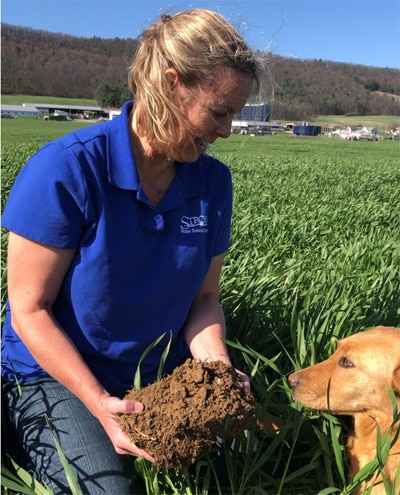
Blazure turned to shooting a soil health video when the coronavirus crisis limited her ability to talk to farmers. Windy conditions interfered with the audio but she says, “At least I got to teach the dog about soil health and water infiltration improvements.”
What has your experience been like so far? Has anything surprising or remarkable happened? How do you feel about being here?
I heard about the Stroud Center’s amazing facility years ago and was certainly not disappointed with my initial tour of the campus. I was surprised at the many research projects happening on the property and the longevity of some of the projects. The buildings are a perfect balance of history and new design, with original artwork scattered throughout.
There’s a real family-like atmosphere among the staff and I enjoy interacting with them when I’m on campus. Everyone has been very friendly, open, and helpful and has made me feel very welcome.
What experiences in your life led to your work at the Stroud Center?
I like to think that I’ve come full circle by joining the Stroud Center. I’m an ecologist by training and almost 30 years ago, I started my career monitoring water quality in an impaired lake and collecting baseline stream data for Idaho’s unassessed waters program. I’ve also worked for a consulting firm undertaking stream survey work for hydrogeomorphology designs, watershed planning, and wetland delineations.
But what really led me to working with the Stroud Center is my fortuitous career shift into agriculture. I spent eleven years working for a county conservation district in the Chesapeake Bay Program. In 2012, I was introduced to the concept of improving soil health to meet water-quality goals and improve farm profitability and sustainability. My involvement with statewide events and meetings gave me the opportunity to interact with the Stroud Center’s watershed restoration staff. When the Stroud Center had the opportunity to expand their soil health initiatives, I was a natural fit in those efforts.
Tell us about your hobbies and interests. What do you enjoy doing in your free time?
In my free time I try to be outside as much as possible. I spend a lot of time hiking in Northcentral Pennsylvania and I camp several times a year. For the last few years I’ve really gotten into birding and collecting citizen science data for Cornell’s Lab of Ornithology. I like to travel and have the goal to get to all fifty states — only two more states to go! I own an old farmhouse with several acres and it seems like there is always an endless list of house projects to work on.
More From Lisa Blazure
- Improving Soil Health for Climate Change Resiliency (video): Blazure and PA No-Till Alliance farmer, Jim Harbach, explain how improving soil health can make agricultural soils more resilient to the changing climate patterns.
- Soil Health Management: Changing Conversations, Revolutionizing Agriculture: Blazure wrote this article for our 2017 Annual Report explaining how soil is a dynamic ecosystem that, under proper management, supports healthy crops with fewer inputs.
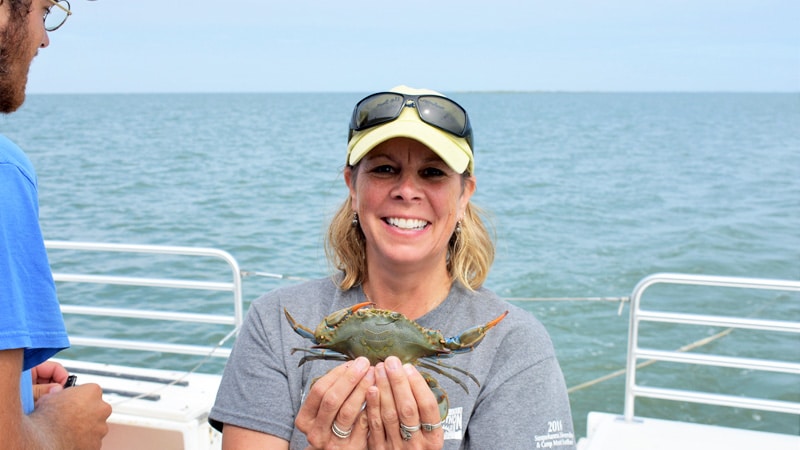
Blazure works with farmers in the Chesapeake Bay watershed to implement best management practices that improve soil health. Better soil health leads to increased water infiltration and decreased runoff, benefitting the Chesapeake Bay and its famous (and tasty) resident, the blue crab.

